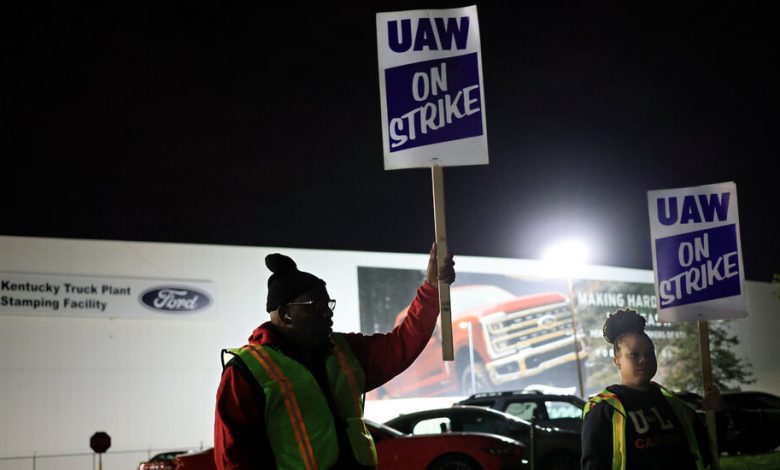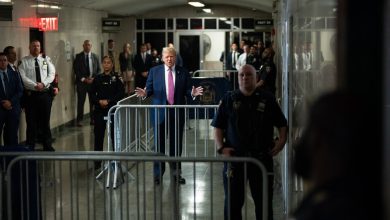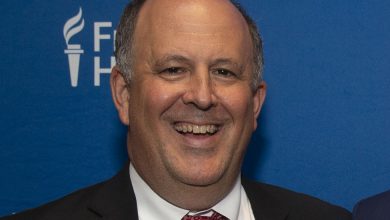Ford Says It Won’t Raise Its Offer to Autoworkers Union

Ford Motor said on Thursday that it could not improve its contract offer to the United Automobile Workers union without hurting its business and its ability to invest in electric vehicles.
The automaker also said the union’s decision to expand its strike to Ford’s largest factory, the Kentucky Truck Plant, would probably hurt workers at other factories and lead to layoffs across the auto industry.
“We are very clear,” Kumar Galhotra, president of the Ford division that makes combustion engine vehicles, said in a conference call with reporters. “We are at the limit. Any more will stretch our ability to invest in the business.”
The U.A.W. is negotiating new labor contracts with Ford, General Motors and Stellantis, the parent of Chrysler and Jeep. The union’s members have struck selected plants and parts warehouses owned by the three companies. On Wednesday, its talks with Ford broke down and the union responded by calling on the 8,700 U.A.W. workers at Kentucky Truck to walk off the job.
“If the companies are not going to come to the table and take care of the membership’s needs, then we will react,” the U.A.W. president, Shawn Fain, said in an online video after the strike in Kentucky was announced.
Production at the plant, in Louisville, stopped Wednesday evening. The factory makes the Super Duty versions of Ford’s F-series pickup trucks as well as the Ford Expedition and Lincoln Navigator full-size sport utility vehicles.
On its own, the Kentucky Truck plant generates about 16 percent of Ford’s total revenue. On a typical day, a new vehicle rolls off its assembly line every 37 seconds.
The plant is so large that a prolonged idling will probably cause stoppages and layoffs at up to 13 other Ford plants that make engines, transmission and axles. Factories owned by the 600 suppliers that provide parts for Ford could also have to lay off workers, Mr. Galhotra said.
“This goes way beyond just hitting Ford’s profits,” he said.
The U.A.W. is seeking a substantial increase in wages as well as a cost-of-living provision, an expanded retirement plan, improved retiree health care benefits, and job security as automakers make the transition to producing electric vehicles. It also wants to end a system in which new hires start at a little more than half the top U.A.W. wage of $32 an hour.
Ford has offered to increase wages by 23 percent over four years, adjust wages in response to inflation and cut the time for new hires to rise to the top wage, to four years from eight.
The U.A.W. went into a negotiating session on Wednesday expecting Ford to sweeten its offer, according to the union. Mr. Galhotra said Ford was prepared to discuss adjustments to its existing offer but not to make a completely new proposal.
The differences became clear quickly, and Mr. Fain instructed Ford workers at the Kentucky plant to strike, union and company officials said. Mr. Fain and other union negotiators left the meeting minutes after it started.
“Unfortunately, we had to escalate our action,” Mr. Fain said in his video. “We came here today to get another offer from Ford, and they gave us the same exact offer as two weeks ago.”




